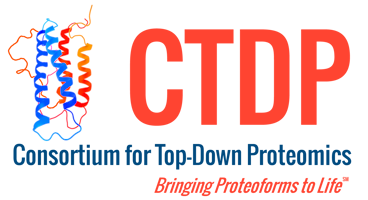Short Courses
To sign up for the following short courses please click here and register.
Short Course 1: Top-Down Proteomics
Monday 25.08.2025 (9 am – 5 pm) & Tuesday 26.08.2025 (9 am – 1 pm)
This 2-day short course will give an overview about techniques and applications in top-down proteomics, proteoform research and biopharma, held by leading scientists in the field: Neil Kelleher, Andreas Tholey, Julia Chamot-Rooke, Kyowon Jeong, Yury O. Tsybin and Hartmut Schlüter.
Program of the course:
- What are proteoforms and why are they important ?
- Sampling of tissues for proteoform analysis
- Liquid chromatography for proteoform fractionation
- Top-down proteomics – basic concepts
- Sample preparation for top-down proteomics
- Mass spectrometry of intact proteins
- Fragmentation of proteoforms
- Top-down-proteomics data analysis - Introduction
- Applications: Analysis of therapeutic proteins in bio-pharma
- Applications: Disease-associated Proteoforms
Short Course 2: Dissecting the impact of deconvolution on top-down identification
Friday 29.08.2025 (9 am – 1 pm)
This 1-day short course will explore the impact of deconvolution in the identification process, comparing Xtract, TopFD, and FLASHDeconv on the same input data. Speakers will include Kyowon Jeong (University of Tuebingen) and David Tabb (University Medical Center of Groningen). Participants will carry out analyses on their own laptops; note that either Microsoft Windows or Linux is necessary for TopPIC Suite support. The software tools will be demonstrated via their GUIs. Prior experience with programming languages is unnecessary.
Theme I: Assessing the degree of variation among deconvolution engines
Participants will deconvolve provided experiments via TopFD and FLASHDeconv on their own computers. They will then analyze the msAlign outputs (as well as a provided MGF file from ProSight PD) in the TDAuditor quality tool. A Jupyter Notebook will then visualize the variation in these deconvolution outputs.
Theme II: Detecting deconvolution impact on identifications
Participants will conduct a uniform TopPIC search on the deconvolution outputs. A Jupyter Notebook will guide them through the resulting PrSMs (Proteoform-Spectrum Matches), revealing areas of agreement and disagreement stemming from the deconvolution process.
